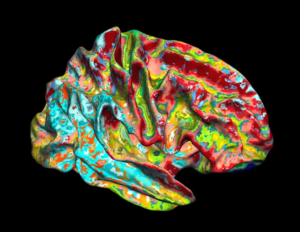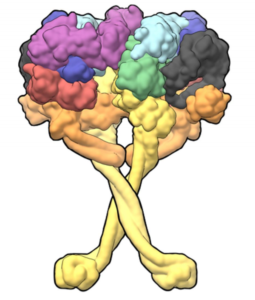This brief profile of the BBSRC LIDo programme is one of a series of brief profiles looking at Doctoral Training Programmes offering funded PhD studentships at Birkbeck. Many thanks to Dr Mark Williams for answering the following questions.
How would you describe the ‘BBSRC LIDo PhD programme’?
The BBSRC-funded London Interdisciplinary Doctoral programme in Biosciences provides PhD training in areas that lie between traditional biological sciences subject areas or at the interface of biology with the physical or mathematical sciences.

LIDo is one of the largest Doctoral Training Programmes in the country; a collaboration between six of London’s world-class universities and specialist science institutions (Birkbeck, Kings, LSHTM, Queen Mary, RVC and UCL). Students on the programme have a wide range of scientific backgrounds (e.g. cell biology, chemistry, genetics, physics, engineering, psychology, neuroscience, biochemistry, mathematics, statistics) but a common interest in solving problems in the life sciences. The consortium provides these students with a unique opportunity to pursue innovative interdisciplinary and cross-institutional research projects in the heart of one of the world’s most vibrant cities.
Which departments at Birkbeck are taking part in this DTP?
The Department of Biological Sciences and the Department of Psychological Sciences
What strengths does Birkbeck bring to this Doctoral Training Programme?
Both Birkbeck departments are among the top ten university departments in the country in their subject area in terms of the quality of their research (REF 2014), and have a substantial profile of world class activity, particularly in structural biology and in understanding the processes of cognitive development.
How is the programme structured?

It is a 4-year programme, based around projects that are proposed by a team of two (or more) supervisors from different disciplines. Around 40 studentships are available each year for students to undertake lab rotations in the first year with different supervisors in different institutions. Then, toward the end of their first year, they select their PhD project. They will subsequently be registered at their primary supervisor’s institution for their PhD. In addition, around 15 CASE projects are available each year that have an industrial co-sponsor. CASE students begin their PhD project right from the start and do not undertake rotations.
All students also undertake classroom training in the first year in computational modelling, statistics, aspects of biology driven commerce and ‘hot topics’ in biological research.
What kinds of resources and facilities are available to students who are offered a place on the programme?
Given the variety of the six institutions involved, it is impossible to summarise adequately. Somewhere in the consortium are resources and facilities for any particular area of research to more or less match anything available at any university in the world. Birkbeck and its neighbour UCL jointly operate a number of world class experimental facilities e.g. x-ray crystallography, NMR, electron microscopy, infra-red and magnetic resonance brain imaging.
What are the advantages for students taking part in this DTP in particular?
The camaraderie of being ‘in it together’ with a large and diverse group of students. The potential to undertake research in several of the colleges of the University of London in different research areas before deciding where to register for their PhD. The huge number and variety of projects that are available.
Are there any features of supervision within LIDo that you would like to highlight?
All students have at least two scientific supervisors to provide guidance and advice. In most of the institutions students will also be assigned a thesis mentor to act as an independent source of advice. LIDo keeps an eye on all the students, supervisors and host departments throughout the PhD. The LIDo representatives at each institution and the LIDO administrative staff are always available to help resolve (usually non-scientific) problems.
Are there any features of training or professional development and employability within LIDo that you would like to highlight?
To broaden student’s experience, all BBSRC-funded students also undertake a paid 3-month internship in an external organisation during their PhD. For CASE students this will be with their industrial partner. For other students the internship can be in any organisation able to provide an appropriate training environment. Students have taken placements in the biotech industry, in the voluntary sector, in a wide-range of start-ups, in policy roles, in government and in science communication. The program also has several networking events per year with invited participants from industry.
How can students find out about potential projects and supervisors at Birkbeck?
For students interested in the CASE studentships, a list of projects is available from November each year (for a following October start) at the LIDo website. Occasionally a few other specific projects affiliated to the programme are also advertised by the individual institutions. Most students are, however, initially recruited to the programme not a specific project or supervisor. For those students who are successful in their applications, a project list is provided in the Summer before they start their first year from which they choose labs to rotate in. There are usually over 200 projects to choose from, of those usually around 20 involve Birkbeck supervisors.
How would you describe your roles within the LIDo?
Multi-faceted. We have an oversight and pastoral role for LIDo students carrying out their PhD projects at Birkbeck. We represent Birkbeck’s views to the consortium. We work with staff from the other institutions in the consortium to take strategic and financial decisions for the DTP, and to organise bids for the funding to continue the programme (current grant funding is £20 million). We develop and enact policies regarding the student training aspects the programme. And finally, and by no means the least of our tasks, we work with staff from the other institutions to select students to join the programme from the many hundreds of applicants that LIDo receives each year.
What background and experience would successful students be able to demonstrate?
High level of recent academic achievement, typically either a First Class BSc or a Distinction at Masters level should be achieved or confidently predicted. Previous experience of research is also important, for example, through an extended undergraduate project, a Master’s degree project or one or more summer research internships. Almost all successful applicants will have spent at least 2-3 months working on a research project and have a good reference from their research supervisor. Applicants with more extensive experience in academia or industry in a research or technical role are regarded favourably even if their academic record is slightly less than perfect.
Where can potential students and supervisors find out more about LIDo?
What do students need to do to apply?
Follow the application guidance available from the LIDo website – a completed application form, CV, references and transcripts need to be provided.
Are there any key dates to be aware of?
The closing date for studentships beginning in Autumn 2018 is 19 January 2018. Applicants should check the LIDo website for further information. It is advisable to begin the process at least a few weeks ahead of the deadline so that you can arrange for all the paperwork to be submitted before the deadline.

